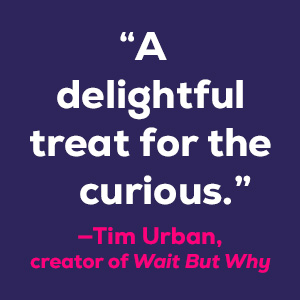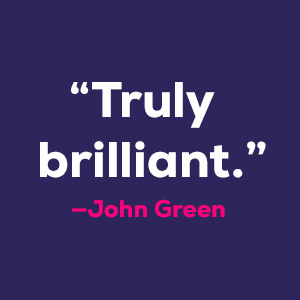Customer Services
Copyright © 2025 Desertcart Holdings Limited


Buy Immune: A Journey into the Mysterious System That Keeps You Alive on desertcart.com ✓ FREE SHIPPING on qualified orders Review: I loved this book! - I loved this book! During the pandemic, I was diagnosed with an autoimmune disease. Naturally I became very interested in learning about the human body, my condition specifically, and how disease and illness happen. I knew about antibodies and autoantibodies from reading articles about COVID and my own health situation, but I didn't really know much about the immune system beyond that. This book was simply excellent. It provided a great high level overview of the various immune cells, what they do, and how they interact with each other and pathogens. The book wasn't dry like a textbook. It was written with more of a storytelling tone while still providing scientific explanations on the different components of the immune system. There was also a lot of humor thrown in and I frequently found myself chuckling. Most of the book is about the various immune cells and what happens when they encounter bacteria or viruses. Once all the cells have been discussed, the remainder of the book covers additional topics like allergies, autoimmune diseases, cancer, vaccines, specific illnesses like measles and HIV/AIDS, and how stress and the environment impact the immune system. Those topics were easy to understand and appreciate after learning about the immune system players. I learned a lot from this book! I have a much better understanding of the immune system. And as a patient, I thought it was actually really cool to be able to look back at some of my past bloodwork and finally know what my doctor was checking. This is definitely a book that I will reference in the future. One of the other reviewers criticized the references to COVID and claimed that the book was politically motivated. I disagree. COVID wasn't discussed all that much in the book, and when it was mentioned, the author made it very clear that the information he included was the current understanding as of the time he was writing the book. He made it clear that our understanding of it would likely change as we learned more in the coming years and his information could become outdated. I thought his references actually made the content more applicable to today's current events. I thoroughly enjoyed this book. I'm actually kind of sad I finished it because it was that good. If you're interested in learning about the immune system, but you don't have a scientific background (or even if you do!) this would be a great book for you! Review: Excellent introduction to the immune system, readily understood by all - Immune is a very well timed book on the overall functionality of the Immune system. The author does an excellent job describing how the immune system functions, what the core cellular roles are and what are the main pathogens the body is trying to protect against. The book discusses how the pieces of the immune system fit together, how immune memory works and how complicated the whole system is. Given we remain within a pandemic and there is a shockingly poor understanding of how the immune system works, what vaccines do and what are the risks we face as a species, this book is perfect for a general audience that can help anyone think about how they should be thinking about their immune system. The authors goal is to give an overview of the immune system and the tools it uses to protect the body. The author starts by contextualizing the size of the body in cell count and the size of the body vs cells and the size of cells vs most intruders. The scale of the body's defense needs are enormous and so the author does well to give an idea of the scale of the problem the immune system faces. He starts out by discussing what we are born with and the basic cells we have to destroy bacterial intruders. He discusses the chemistry of cells and the protein foundations of almost all signaling and coordinating through the complement immune system. The author discusses how helper T-cells and B-cells coordinate with Macrophages and how dendritic cells signal which intruders are in the area. The author discusses how antigens are picked up and used as signals to trigger further cell production to combat specific pathogens where the body has a history of familiarity and highlights how the immune system has an astronomical library of how to build antibodies to protect the body. The author first details how the body fights bacterial infection and how they often enter the body by an example of if one steps on a nail. The author later gets into viral infections and how virus's use the body's own cells against oneself. The different machinery needed for viral infections is laid out and the more complex chemistry of how the immune system checks its own cells for faulty production is discussed as well as the use of interferon to slow down cellular growth generally. This picture of what goes on during a viral infection and the symptoms and risks are very informative for those who might have questions about COVID and how to think about it, though there is also a short discussion on COVID specifically at the end. The author highlights how vaccines work and the overall significant utility of them. He discusses MRNA vaccines in particular and the safety of them. This is definitely useful information in plain English that is further interpretable though the lucid writing about what goes on in the immune system when presented with antigens. Thus overall any reader would come out with a clear picture of why vaccines are so useful, how they could be risky (they trigger an immune response which inherently has some risk no matter what) and how that dwarfs the risk of a real viral immune response. The author goes on to discuss how the immune system can fail and discusses allergies briefly and how that can be seen as an immune failure. The author also goes into cancer operates and how AIDS is so challenging to fight. Overall Immune is an excellent introduction to the immune system and how it all fits together. Having a very faded memory of biology from High School, this was really helpful for me. It gives a clear overview and provides enough information that one will feel like they have a better understanding on how to make choices about ones immune system. In a time like this, such information is quite priceless.





| Best Sellers Rank | #12,566 in Books ( See Top 100 in Books ) #3 in Immunology (Books) #12 in Immune Systems (Books) #19 in Anatomy (Books) |
| Customer Reviews | 4.8 4.8 out of 5 stars (9,292) |
| Dimensions | 7.3 x 1.3 x 9.35 inches |
| ISBN-10 | 0593241312 |
| ISBN-13 | 978-0593241318 |
| Item Weight | 2.31 pounds |
| Language | English |
| Print length | 368 pages |
| Publication date | November 2, 2021 |
| Publisher | Random House |
C**.
I loved this book!
I loved this book! During the pandemic, I was diagnosed with an autoimmune disease. Naturally I became very interested in learning about the human body, my condition specifically, and how disease and illness happen. I knew about antibodies and autoantibodies from reading articles about COVID and my own health situation, but I didn't really know much about the immune system beyond that. This book was simply excellent. It provided a great high level overview of the various immune cells, what they do, and how they interact with each other and pathogens. The book wasn't dry like a textbook. It was written with more of a storytelling tone while still providing scientific explanations on the different components of the immune system. There was also a lot of humor thrown in and I frequently found myself chuckling. Most of the book is about the various immune cells and what happens when they encounter bacteria or viruses. Once all the cells have been discussed, the remainder of the book covers additional topics like allergies, autoimmune diseases, cancer, vaccines, specific illnesses like measles and HIV/AIDS, and how stress and the environment impact the immune system. Those topics were easy to understand and appreciate after learning about the immune system players. I learned a lot from this book! I have a much better understanding of the immune system. And as a patient, I thought it was actually really cool to be able to look back at some of my past bloodwork and finally know what my doctor was checking. This is definitely a book that I will reference in the future. One of the other reviewers criticized the references to COVID and claimed that the book was politically motivated. I disagree. COVID wasn't discussed all that much in the book, and when it was mentioned, the author made it very clear that the information he included was the current understanding as of the time he was writing the book. He made it clear that our understanding of it would likely change as we learned more in the coming years and his information could become outdated. I thought his references actually made the content more applicable to today's current events. I thoroughly enjoyed this book. I'm actually kind of sad I finished it because it was that good. If you're interested in learning about the immune system, but you don't have a scientific background (or even if you do!) this would be a great book for you!
A**N
Excellent introduction to the immune system, readily understood by all
Immune is a very well timed book on the overall functionality of the Immune system. The author does an excellent job describing how the immune system functions, what the core cellular roles are and what are the main pathogens the body is trying to protect against. The book discusses how the pieces of the immune system fit together, how immune memory works and how complicated the whole system is. Given we remain within a pandemic and there is a shockingly poor understanding of how the immune system works, what vaccines do and what are the risks we face as a species, this book is perfect for a general audience that can help anyone think about how they should be thinking about their immune system. The authors goal is to give an overview of the immune system and the tools it uses to protect the body. The author starts by contextualizing the size of the body in cell count and the size of the body vs cells and the size of cells vs most intruders. The scale of the body's defense needs are enormous and so the author does well to give an idea of the scale of the problem the immune system faces. He starts out by discussing what we are born with and the basic cells we have to destroy bacterial intruders. He discusses the chemistry of cells and the protein foundations of almost all signaling and coordinating through the complement immune system. The author discusses how helper T-cells and B-cells coordinate with Macrophages and how dendritic cells signal which intruders are in the area. The author discusses how antigens are picked up and used as signals to trigger further cell production to combat specific pathogens where the body has a history of familiarity and highlights how the immune system has an astronomical library of how to build antibodies to protect the body. The author first details how the body fights bacterial infection and how they often enter the body by an example of if one steps on a nail. The author later gets into viral infections and how virus's use the body's own cells against oneself. The different machinery needed for viral infections is laid out and the more complex chemistry of how the immune system checks its own cells for faulty production is discussed as well as the use of interferon to slow down cellular growth generally. This picture of what goes on during a viral infection and the symptoms and risks are very informative for those who might have questions about COVID and how to think about it, though there is also a short discussion on COVID specifically at the end. The author highlights how vaccines work and the overall significant utility of them. He discusses MRNA vaccines in particular and the safety of them. This is definitely useful information in plain English that is further interpretable though the lucid writing about what goes on in the immune system when presented with antigens. Thus overall any reader would come out with a clear picture of why vaccines are so useful, how they could be risky (they trigger an immune response which inherently has some risk no matter what) and how that dwarfs the risk of a real viral immune response. The author goes on to discuss how the immune system can fail and discusses allergies briefly and how that can be seen as an immune failure. The author also goes into cancer operates and how AIDS is so challenging to fight. Overall Immune is an excellent introduction to the immune system and how it all fits together. Having a very faded memory of biology from High School, this was really helpful for me. It gives a clear overview and provides enough information that one will feel like they have a better understanding on how to make choices about ones immune system. In a time like this, such information is quite priceless.
S**A
The book is great deserves its price
E**M
This book offers a fascinating and humorous journey through the complex world of the human immune system. The author manages to transform an intricate subject into something accessible and entertaining, using creative metaphors and analogies that make the reader smile while learning. For instance, he compares killer T cells to "a dude with a hammer that bashes heads in while laughing maniacally." This approach makes complicated concepts much easier to understand and remember. The book covers a wide range of topics, from the basic functioning of the immune system to current issues like the Covid-19 pandemic. It also discusses practical implications, such as the importance of vaccines and the dangers of diseases like measles, offering crucial information about how these diseases affect our immunity in the long term. One of the highlights is the explanation of why people react differently to diseases like Covid-19, relating this to the diversity of MHC II molecules. The author also addresses intriguing themes, such as the influence of the immune system on partner selection, and demystifies misconceptions about "boosting" the immune system. Although the book occasionally delves into more technical territory, the consistent use of metaphors helps clarify difficult concepts. It's essential reading for anyone interested in better understanding their own body, offering valuable insights into one of our most crucial biological systems. Particularly relevant in today's world, the book provides a scientific perspective on vaccines, pandemics, and overall health. In summary, if you want to learn about the immune system in a way that's both fun and informative, this book is an excellent choice. It will leave you with a new appreciation for the complex defense system that protects us every day.
P**Ł
Książka idealna na każdą porę dnia, bardzo fajnie się ją czyta i przy okazji uczy angielskiego.
A**.
This book is incredible. So informative and easy to understand as well as being witty. Bravo! The hardback is sturdy and well constructed. The paper stock is satin and good quality. I definitely recommend this book to anyone interested in the immune system or human body.
X**R
I have a lot of respect for people who can take complicated topics and explain them in layman terms. So when I saw that the creator of the YouTube channel Kurzgesagt wrote a book, I had to read it. And it did not disappoint. The machinery behind the immune system is incredibly complex, and yet, the book made me understand it at a high level. It starts with the basics: what are cells and proteins, what is the job of the immune system and what cells play a role in it. Then, it explains how the different type of immune cells work together to protect our body from intruders. And finally, the author addresses what can happen if your immune system gets it wrong. What if it attacks our own cells? What happens when someone suffers from allergies? How does cancer evolve and why doesn't everyone get it? I thoroughly enjoyed reading this book, and took SO many notes! I now know the fundamental mechanisms that keep me alive, and I understand what happens inside my body when I get sick or suffer from an infected wound. I can picture the soldiers of my immune system going to battle while I'm laying sick on the couch. The only thing I found a bit weird was that the book uses imperial units instead of metric. Scientific material, even if it's intended for "amateurs", should stick to metric!
Trustpilot
3 days ago
1 month ago